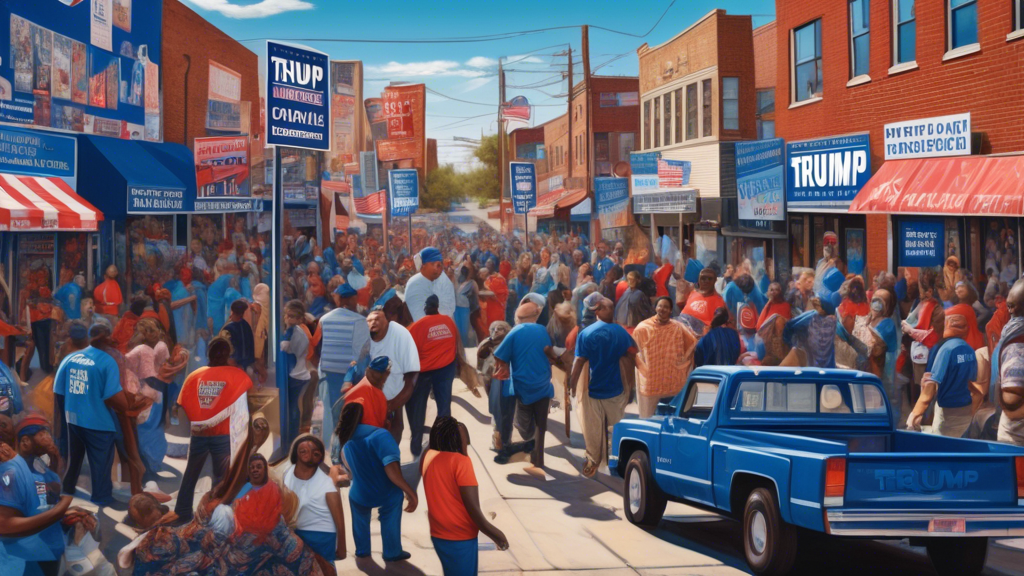
Working-Class Electorate in Deep Blue City Shifts Support to Trump
In a surprising turn of events, new polling data indicates that a significant segment of the working-class electorate in traditionally Democratic strongholds is shifting its support towards Donald Trump. This trend, observed in several deep blue cities across the United States, suggests a growing disenchantment with the policies and leadership of the Democratic Party.
Changing Sentiments on the Ground
Historically, blue-collar workers in urban areas have been a reliable base for the Democratic Party, drawn by promises of social justice, labor rights, and economic equity. However, as economic concerns mount—particularly in the wake of inflation and supply chain disruptions—many in the working class are re-evaluating their political affiliations. Reports from local communities indicate that these voters feel increasingly alienated, citing perceived inaction on job growth and stagnant wages.
Trump’s Appeal
Donald Trump’s message appears to resonate with these voters, particularly his focus on revitalizing American manufacturing and promoting job creation. His administration’s commitment to America First policies has found traction among those who feel left behind by globalization. Moreover, Trump’s direct engagement with the electorate—his town hall meetings, social media interactions, and public appearances—contrasts starkly with what many perceive as the aloofness of current Democratic leadership.
Economic Factors Driving the Shift
The shift in allegiance is closely tied to economic dissatisfaction. Many voters express frustration over rising costs of living, particularly in housing and basic goods. Working-class individuals who have traditionally relied on the Democratic Party’s platform for support are now questioning whether those policies have truly benefited their communities. Trump’s stances on trade and job creation are viewed as compelling alternatives.
Local Impact and Future Outlook
As this trend materializes, it has significant implications for upcoming elections. Local Democratic leaders are beginning to take notice, with some acknowledging the need for a recalibration of policies that address the core concerns of their working-class constituents. The potential for a reevaluation of party strategies is heightened as Republicans capitalize on this sentiment—and the groundwork is being laid for a contentious electoral battle ahead.
Conclusion
The shift in support among working-class voters in deep blue cities marks a pivotal moment in American politics. As the electorate evolves, the response from political parties will be critical in shaping the 2024 election landscape. Understanding and addressing the concerns of this demographic could very well be the key to electoral success.
